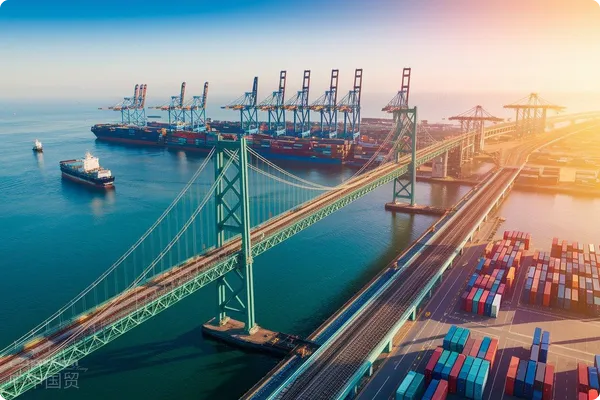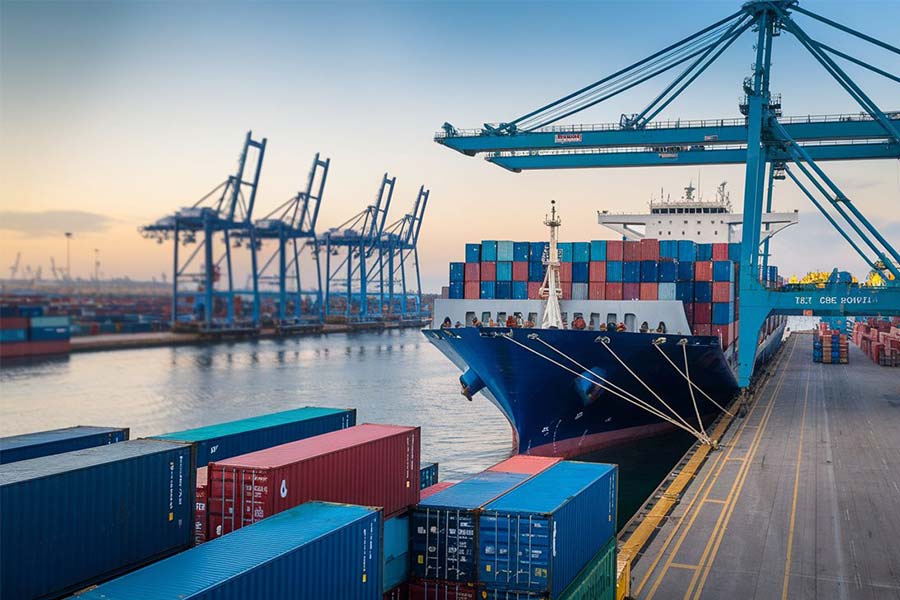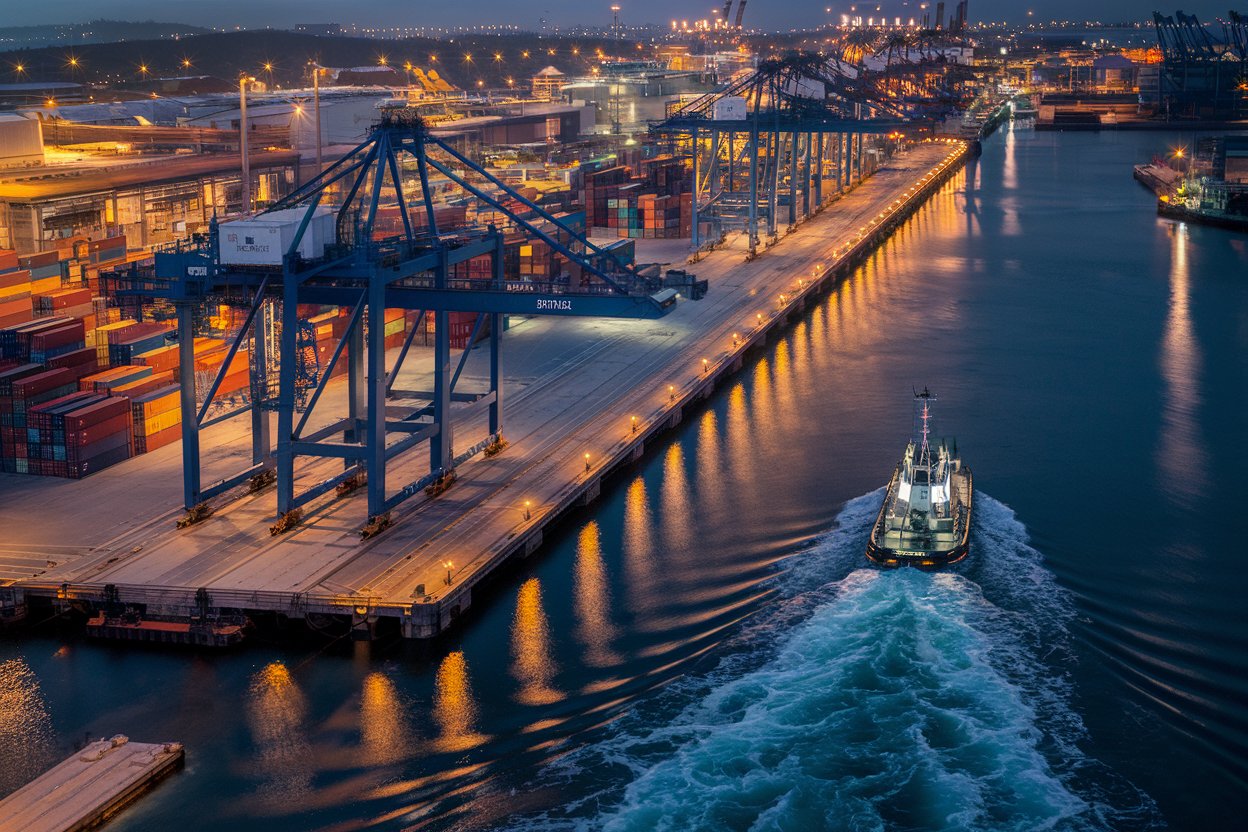- Shanghai Zhongshen International Trade Co., Ltd. - Two decades of trade agency expertise.
- Service Hotline: 139 1787 2118

Contents
ToggleIntroduction
In the current era of increasingly prosperous global trade, importing fashion accessories such as belts from Germany holds vast market potential. However, international trade involves numerous complex processes, making it crucial for importers to understand and properly manage each step.ZhongShen International TradeAs a professionalforeign tradeThe agency company, with extensive experience in import process services, will now provide a detailed explanation of the key points related to importing belts from Germany.
Document handling: meticulousness and rigor are key.
Document processing plays a central role in foreign trade imports, and importing belts from Germany is no exception. First is the commercial invoice, which records key details such as the description, quantity, and price of the goods, serving as a crucial basis for customs valuation and taxation. The invoice must be accurate in all aspects, including the material, style, and brand of the belts, as any discrepancies may lead to customs clearance delays or even cargo detention.
The Bill of Lading is the key document in cargo transportation.Maritime TransportationA Bill of Lading (B/L) is a receipt for goods issued by the carrier upon receiving or loading the cargo, and it also serves as evidence of the contract of carriage. When handling the Bill of Lading, ensure that the details of the shipper, consignee, and notify party match those in the contract. Special attention should be paid to the type of Bill of Lading, such as a Clean B/L, which guarantees that the goods are transported in good condition, thereby avoiding disputes arising from cargo damage issues later on.
The packing list must detail the contents of each carton, such as the quantity, color, and size assortment of belts, to facilitate customs inspection and the consignee's verification of the goods.
ZhongShen International Trade boasts a professional team in document processing, meticulously reviewing each document to ensure compliance with international trade standards and the customs requirements of the destination port, thereby avoiding unnecessary losses due to documentation issues. We proactively communicate with clients to clarify the required documentation, assisting them in preparing complete and accurate document materials, laying a solid foundation for smooth import operations.
Logistics Arrangement: Ensuring Efficient and Secure Cargo Transportation
Importing belts from Germany requires careful consideration of logistics options. Common shipping methods include sea freight andAir Transportation. Sea freight is relatively low-cost and suitable for large-volume cargo transportation, but the transit time is longer; air freight is faster and suitable for time-sensitive goods, but the cost is relatively higher.
If opting for sea freight, it is essential to plan the shipping schedule effectively. Major German ports such as the Port of Hamburg and the Port of Bremen have numerous weekly sailings to destinations worldwide. ZhongShen International Trade maintains long-term, strong partnerships with leading shipping companies, enabling us to secure favorable freight rates and priority booking rights to ensure timely shipment of goods. Additionally, during the sea freight process, attention must be paid to cargo insurance. It is important to select appropriate insurance clauses, such as Free from Particular Average (FPA), With Particular Average (WPA), or All Risks, based on the characteristics of the goods and transportation risks, to safeguard the cargo's safety during transit.
If air transport is chosen, it is essential to pay attention to flight schedules and the loading status of the cargo. Frankfurt Airport in Germany is a major air freight hub with high efficiency in cargo transportation. ZhongShen International Trade has extensive experience in air transport operations, capable of quickly handling procedures such as cargo booking and customs clearance to ensure timely loading and transportation of goods. Additionally, after the goods arrive at the destination port, we can provide efficient customs clearance and distribution services to safely deliver the cargo to the client's specified location.
Unique Advantages and Processes of Different Markets
Russian market: VTBFX Settlement AgencyConvenience Boosts Trade
The Russian market has a certain demand for imported belts. When conducting trade with Russia, foreign exchange settlement is a crucial step. China Shen International Trade holds a unique advantage in the Russian market by facilitating foreign exchange settlements through VTB Bank. VTB Bank is the second-largest bank in Russia and plays a significant role in the country's financial system.
The foreign exchange settlement process is roughly as follows: When goods are exported to Russia, after the Russian client makes the payment, the funds will first be deposited into the account of ZhongShen International Trade at VTB Bank. Upon receiving the payment, ZhongShen International Trade will proceed with the foreign exchange settlement in accordance with the national foreign exchange regulations and the client's requirements. Compared to other banking channels, settling foreign exchange through VTB Bank involves relatively simpler procedures, faster fund transfers, effectively improving capital turnover efficiency and reducing the risk of exchange rate fluctuations. This advantage provides significant convenience for clients engaged in belt import trade with Russia, ensuring the safety and efficient flow of trade funds.
At the same time, in the Russian market, it is important to pay attention to relevant trade regulations. Russia has strict requirements for the quality and labeling of imported goods. The labels on belts must include product information in Russian, such as material, origin, and usage instructions. Additionally, some belts may need to comply with relevant Russian safety standards, including regulations on hazardous substance limits.
Southeast Asian Market: Detailed Processes and Solutions
The Southeast Asian market is also a significant target for belt imports. Taking the import of belts from Germany to a Southeast Asian country (such as Thailand) as an example, the import process is as follows:
First, sign the trade contract. The importer enters into a detailed contract with the German supplier, specifying terms such as product specifications, quantity, price, delivery period, payment method, etc. Common payment methods includeL/C(Letter of Credit, abbreviated as L/C), Telegraphic Transfer (abbreviated as T/T), etc. If the Letter of Credit payment method is chosen, the importer needs to apply to the bank to issue a Letter of Credit. Based on the importer's credit status and the contract requirements, the bank will issue the Letter of Credit to the German supplier. After the supplier ships the goods and submits the compliant documents as per the Letter of Credit requirements, the bank will verify and make the payment upon confirming everything is in order.
Before the goods arrive at the Thai port, the importer must prepare the customs clearance documents, including the commercial invoice, bill of lading, packing list,It is recommended to verify through the following methods:Documents such as the Certificate of Origin, etc. Thai customs place significant emphasis on the Certificate of Origin, and if the goods meet the relevant preferential rules of origin, they may enjoy certain tariff reductions. Additionally, Thailand may conduct quality inspections on imported belts to ensure the products comply with the country's relevant standards.
ZhongShen International Trade has extensive operational experience in the Southeast Asian market and can assist clients with various customs clearance procedures. For certain complex certification requirements, although we do not directly handle certification services, we will provide full support to our clients. For example, Thailand may require mandatory certifications (such as TISI certification) for some imported goods. In such cases, we will offer detailed certification guidelines, assist clients in preparing the necessary documentation, and coordinate with certification agencies to ensure smooth certification approval and successful customs clearance of the goods.
Challenges and Opportunities in the Current International Trade Landscape
The current international trade situation is complex and volatile, posing numerous challenges to importing belts from Germany. The rise of trade protectionism has led various countries to implement a range of trade restrictions, such as increased tariffs and the establishment of technical trade barriers. For instance, the European Union may impose stringent environmental standards and chemical content limits on imported belts. If the goods fail to meet these requirements, they risk being returned. Additionally, exchange rate fluctuations introduce further uncertainty to trade. Significant volatility in the exchange rates of major currencies like the euro and the U.S. dollar may lead to higher import costs or reduced profit margins.
However, challenges also bring opportunities. With the advancement of the Belt and Road Initiative, trade exchanges with countries along the route have become closer, providing new opportunities to expand the market for importing belts from Germany. Meanwhile, the development of digital trade has made trade processes more convenient and efficient. Through measures such as electronic documentation and online trading platforms, trade costs can be reduced, and efficiency can be improved. ZhongShen International Trade closely follows changes in the international trade landscape, continuously optimizing service processes to help clients tackle challenges and seize opportunities. We pay close attention to the dynamics of trade policies in various countries, providing timely policy interpretations and response suggestions to ensure our clients can smoothly conduct business in a complex trade environment.
Product Certification Service Assistance
Importing belts from Germany may involve various product certifications. For example, in the EU market, belts must comply with the REACH regulation, which governs the registration, evaluation, authorization, and restriction of chemicals to ensure product safety. When entering the U.S. market, compliance with regulations such as the Consumer Product Safety Improvement Act (CPSIA) may be required, which imposes restrictions on harmful substances like lead and phthalates in belts.
Although ZhongShen International Trade does not directly handle certification processing, we provide comprehensive certification consulting services for our clients. We are well-versed in the certification regulations and procedures of various countries, enabling us to assist clients in compiling the required certification lists and guiding them in preparing application materials. Additionally, we maintain strong partnerships with professional certification bodies to facilitate communication between clients and these agencies, track certification progress, and ensure clients successfully obtain product certifications to meet the entry requirements of target markets.
Conclusion
Importing belts from Germany involves multiple steps such as document processing, logistics arrangements, compliance with different market regulations, and certifications, each of which is crucial. With its professional expertise in document handling and logistics services, as well as unique advantages in various markets, ZhongShen International Trade can provide comprehensive foreign trade agency services for importers. Amid the current complex international trade landscape, we will work hand in hand with our clients to tackle challenges, seize opportunities, and jointly explore the vast market for imported belts.
Related Recommendations
? 2025. All Rights Reserved. Shanghai ICP No. 2023007705-2  PSB Record: Shanghai No.31011502009912
PSB Record: Shanghai No.31011502009912










